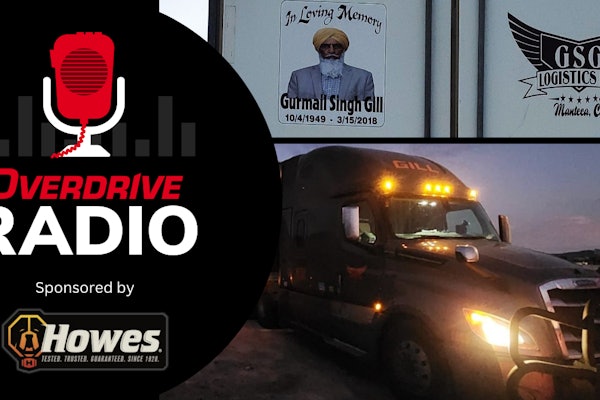Karl Marx prophesied that capitalism would be swept into the “ashcan of history.” To hear some tell it, owner-operators are already in the dustpan, headed for the same destination.
Let’s look closer at some of the arguments behind this prediction.
High fuel prices will drive owner-operators out of business. During parts of 2003, diesel averaged less than $1.50 a gallon. It rose to more than $3 a gallon in 2007. What did the owner-operator population do during that time? It increased, as did average owner-operator income, to more than $50,000. Granted, fuel nearly hit $5 a gallon nationwide during 2008 and the ranks of owner-operators – and fleets – fell. The culprit for both was more the weak economy than fuel.
Fuel surcharges, now widely used in the industry, protect owner-operators from outrageous prices. Those who get a full surcharge and are disciplined enough to get more than 6 miles per gallon can profit off the surcharge.
It’s not just fuel, but all economic uncertainties make it too difficult to survive as an owner-operator. In the decade-plus I’ve been in the business, owner-operators have earned more than company drivers. As demand for all drivers has taken a hit with the economy, owner-operators, who have more at risk than employee drivers, will have more financial ground to make up when markets rebound, but it will happen. Carriers wary about adding capacity will feel more comfortable using contractors instead of buying trucks and hiring drivers.
The courts are gradually demolishing independent-contractor status. There will always be lawsuits about the gray area between contractors and employees, and not just in trucking.
True, some decisions have leaned toward defining contractors as employees, and President Obama’s record puts him in that camp. Still, free-market forces will prevail. If the Internal Revenue Service or Congress erects new hurdles for contractor status, leased operators will find ways to jump the hurdles or dance around them. Ditto for the fleets that need the low-cost flexibility that comes with using independent contractors.
When electronic on-board recorders become mandatory, owner-operators will no longer be able to cheat on their logs to get the miles they need to survive. Werner Enterprises, which has a large owner-operator division, and many smaller fleets have used paperless logs for years.
Drivers at such fleets often report they appreciate the clear definition of driving limits.
If recorders are mandated, less freight will get moved because cut-rate fleets will be unable to push drivers to cheat on logs. The demand for trucking capacity will rise. Fleets will need more owner-operators and company drivers to help meet it.
Neither hard times nor government intervention is going to squash the entrepreneurial spirit. As long as it’s possible to buy a truck, thousands of CDL-holders will look to make it on their own.
Business cycles come and go. The willingness to take a risk, work hard and out-earn someone drawing a paycheck isn’t going away.









